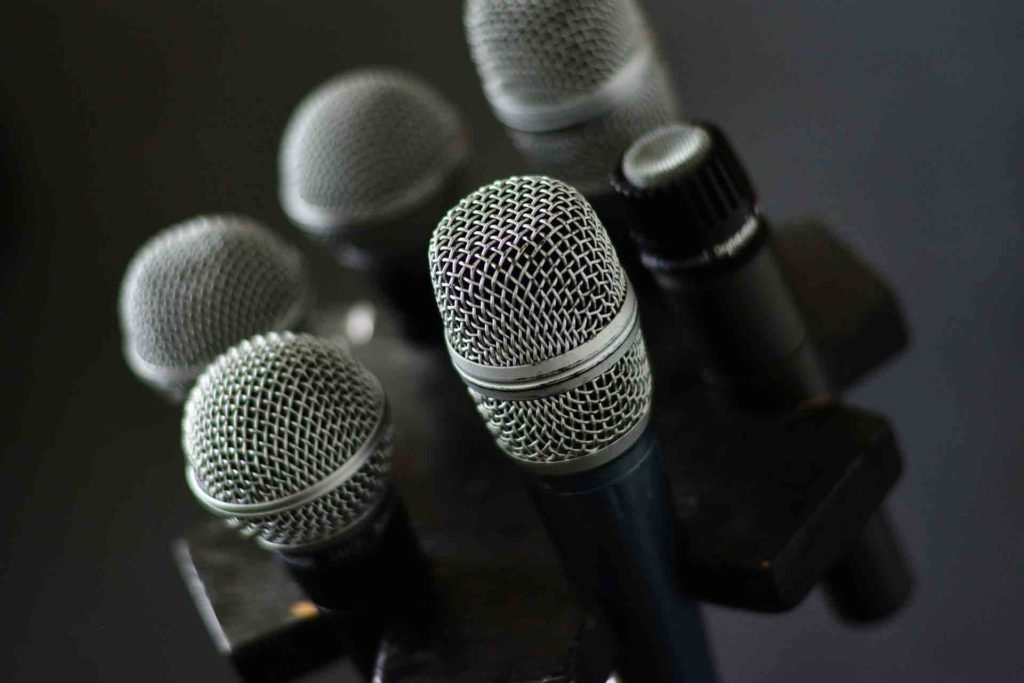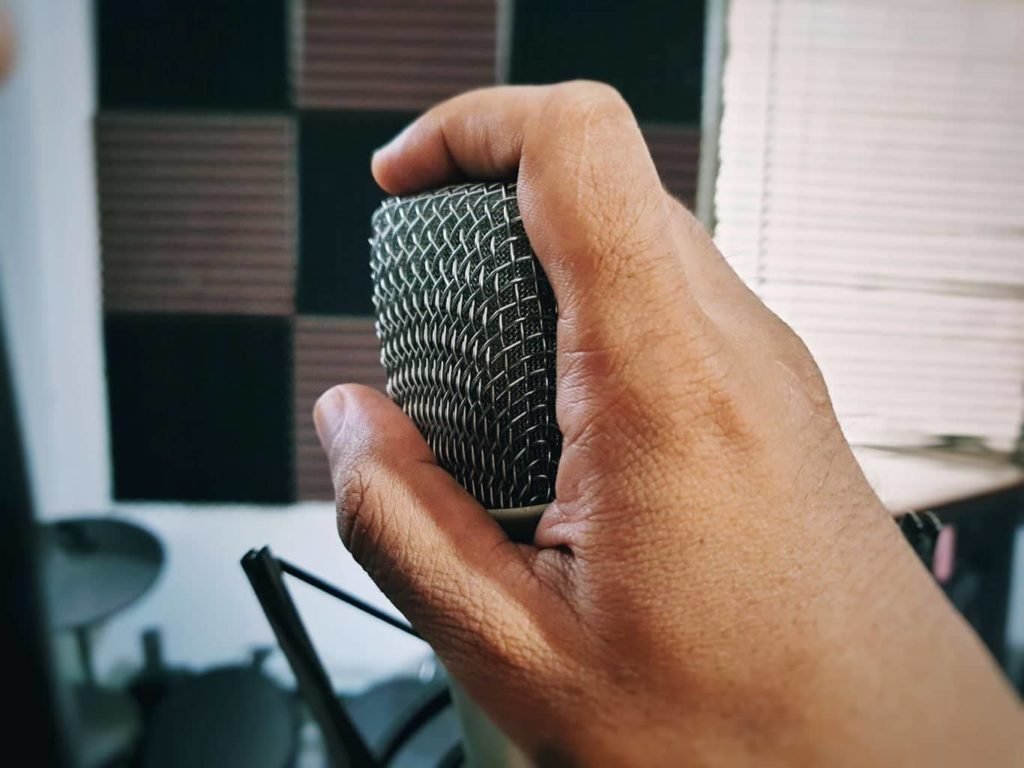Microphone Etiquettes
Base on my own experience, I’d say 9 out of 10 people fail the microphone test. I am referring to the vast majority of singers, performers, and the daily microphone users who don’t have a clue on how to use a microphone properly.
Microphones are expensive. You should take good care of whatever microphones you have. For PA System owners, taking good care of their microphones is part of their business – until someone uses them carelessly.
Most of the time, singers or speakers do not know how to use a microphone properly. Yes, sure, you hold it and say something. How hard can it be?
Here are some of the stuff people do that qualifies as a microphone test failure.
1. Knocking On A Microphone – please don’t

“Hello, soundcheck, microphone test one, two, three tests. KNOCK KNOCK KNOCK can you raise the volume please?”
The number 1 thing most people do when they see a microphone in front of them is knock on them. Ridiculous but I too have been there.
For some reason, it has become a public habit to knock on microphones for sound checking. Don’t do it!
Microphones have an internal mechanism that is so sensitive. Knocking on a mic head is equivalent to dropping it on the floor.
You talk to the mic; you talk at a loud speaking voice so you and the mixing engineer can set the levels correctly.
You can also whistle or blow some air on to the microphone. This way you can check the microphone if it’s on or not.
2. Singing and speaking too close or too far to a microphone

Some people just don’t get it. Speaking and singing too close to a microphone is never a good thing.
Microphones have specific pickup patterns and distances that they can cover to amplify a sound source – in most cases, the human voice.
Speaking too close to a microphone causes the audio to distort. Distortion makes the audio unpleasant to your audience.
Just image a singer belting a high note and stuffing the microphone close to his or her mouth. You just made your audience very uncomfortable.
If you are a singer, by the way, you might find these tips for a singing competition helpful.
Also, if you speak and sing too far from a microphone, it introduces a different kind of issue for the audience and mixing engineer.
Your audience won’t hear you well, and the sound engineer gets blamed for why the microphone is not working. I have seen it happen countless times.
3. Please do not choke or cup the microphone

As funny as it may seem, some singers or speakers hold their mic right on the capsule. The capsule is the net-like covering on top.
Some people think it’s pretty cool because it looks unique. Keep your uniqueness because for the sound engineer you are the worst nightmare!
If you hold the mic in a manner like you are choking it, you are blocking some audio to enter into the microphone correctly.
So if audio can’t enter accurately, these presents many challenging issues for the sound engineer.
One microphone test that engineers do before an event is gain staging. They are expecting you to speak to the mic properly, not choke or cup it.
4. Never step on the wires.
If you are not using a wireless microphone, then you should know how to deal with a microphone wire.
Frequently, in church services, parties, and other gatherings, microphone wires are all over the place. People step on microphone wires a lot. Even chairs or heavy materials are placed on top of the wires causing damage to it.
Microphone wires are in charge of sending the signal from the mic to the entire sound system. A faulty wire due to a lot of abused and being stepped on can’t deliver audio signals accurately.
5. No Microphone Test when not in use – turn it off.
There were occasions during a live show that performers backstage were speaking to the microphone, and the audience could hear them. Horror filled the director’s face who was running the show.
When not in use, turn off the microphone for several apparent reasons.
One, you don’t capture sound sources that aren’t meant to be heard.
Two, you help save resources. If it were a wireless microphone, turning it off could extend battery life.
Good habits lead to good results

We can help educate people on how to use microphones. These are beneficial for the audience, the owner of the microphones, and ultimately for the user.
Do you know of other things that need to be on this list? If so, please comment below.